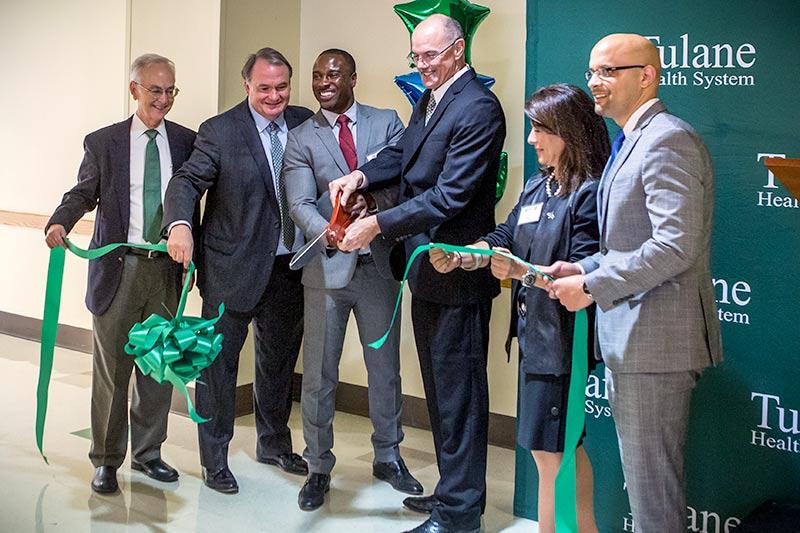Former pro athletes get all-star treatment at new sports medicine clinic
There are two Jabari Greers.
There’s the Saints cornerback and Super Bowl champion, a celebrity and football star. And there’s the former athlete, a husband and father navigating his own healthcare – and his future after football.
“The person that people think they know – the football player – isn’t around anymore. He’s gone,” Greer said. “But when you’re in public, everyone reminds you of the player that was. When you’re in a public healthcare setting, it’s very hard to keep up that ‘warrior’ persona and still be honest with your doctor about what you’re going through.”
On Monday, Tulane President Mike Fitts, whose father was a noted surgeon, helped open a new 5,000-square-foot clinic that will provide exactly the type of atmosphere Greer describes.
“To those athletes who have thrilled and inspired us, we owe you the very best medical care,” said Fitts. “We must ensure that the sacrifices you made for all of us are not too great and that we take care of our heroes.”
The Tulane Institute of Sports Medicine has created the new Professional Athlete Care Team (PACT) within the Tulane Medical Center designed to meet the needs of former professional athletes. PACT was developed through a partnership between the Tulane University School of Medicine and Tulane Health System to support athletes’ health and safety both on and off the field, said Dr. Greg Stewart, Tulane’s chief of physical medicine and rehabilitation and the PACT medical director.
“Professional athletes have a different relationship with healthcare than most of us,” said Dr. Stewart, who also provides direction for the medical aspects of the National Football League Player Care Foundation’s Healthy Body and Mind screening program. “Obviously, their bodies undergo stresses unique to their sports and positions, and we at Tulane have the experience and caregivers to ensure optimum care for those needs.
“But it’s not just the high level of healthcare we provide. From high school to college to the pros, these athletes typically experience ‘concierge’ service – and it can be difficult when they retire and that goes away. So we’ve built a program that picks up where they left off and gives these athletes the level of care – and service – they’re used to.”
For more information, please visit TulaneHealthcare.com/SportsMedicine.

